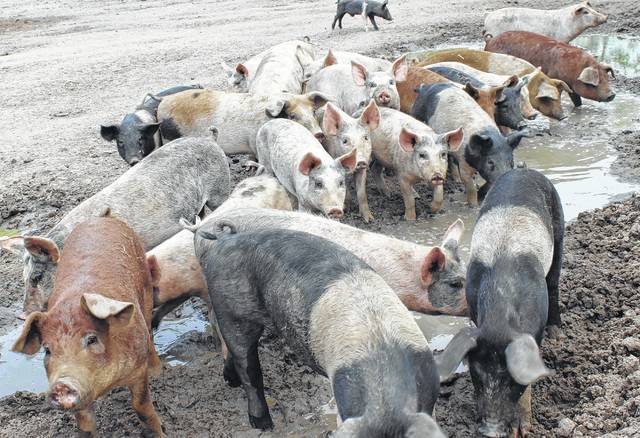The health and well-being of the swine that farmers care for on a daily basis is their number one on-farm priority. The spread of infectious diseases and viruses results in decreased production and increased mortality, which diminishes the bottom dollar for farmers and increases their workload.
Generally, bacteria can survive longer in a cooler environment which creates an easier field for the spread of infectious diseases and viruses; therefore, farm biosecurity is more important during winter months.
As African Swine Fever (ASF) continues its spread across Asia, farmers should be vigilant and concentrate on farm biosecurity. Most recently, ASF has been confirmed in South Korea and the Philippines, totaling nine Asian countries with confirmed African Swine Fever outbreaks.
Listed below are some important biosecurity measures farmers should use all year:
• Proper implementation of external and internal biosecurity practices is vital, especially during winter months.
• Vehicle movement from farm to farm presents a major opportunity for the transmission of an infectious disease or virus. Producers are wise to take every precaution concerning all vehicles entering their farm and ask that they be thoroughly washed, cleaned, and disinfected before entering.
• Anytime new swine arrives at a facility, there is a risk of transmission of an infectious disease or virus. New swine arriving should be quarantined immediately. Producers should only accept swine from a reliable source that can validate their health. Once the swine have been quarantined, producers have the opportunity to assess their health for themselves and make necessary adjustments. Most producers in North Carolina receive swine from minimal sources and have complete knowledge of their origin; however, this does not lessen the farmer’s responsibility for monitoring their health.
• Physical barriers prove to offer a notable defense against infectious diseases and viruses. Swine facility locations with open sides should consider the addition of physical barriers. They can assist in minimizing rodents, human traffic, and wild animals such as feral hogs. There is a growing number of species of animals that have the capability of becoming contaminated with viruses and infectious diseases that can spread to swine.
• Lastly and probably most importantly, is reducing the number of visitors to a swine facility to a bare minimum. When visitors must come, they should be given and follow specific instructions concerning entry and producers must make sure the instructions are followed. Having strong biosecurity policies in place is very important, but what is more important is how consistently they are carried out on a daily basis on the farm. Farmers will strengthen the health of their animals and the swine industry as a whole if biosecurity is a top priority every day.


